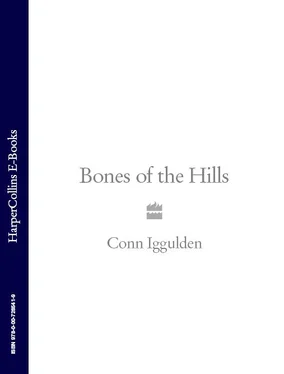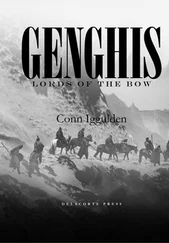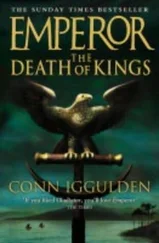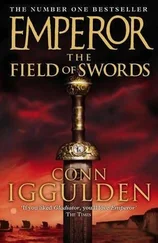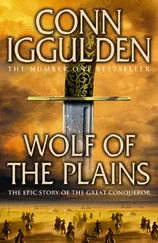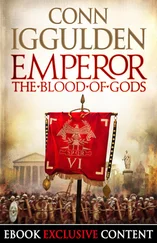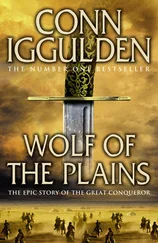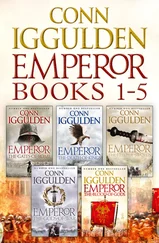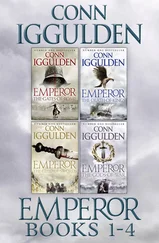Conn Iggulden - Bones Of the Hills
Здесь есть возможность читать онлайн «Conn Iggulden - Bones Of the Hills» — ознакомительный отрывок электронной книги совершенно бесплатно, а после прочтения отрывка купить полную версию. В некоторых случаях можно слушать аудио, скачать через торрент в формате fb2 и присутствует краткое содержание. Жанр: Исторические приключения, на английском языке. Описание произведения, (предисловие) а так же отзывы посетителей доступны на портале библиотеки ЛибКат.
- Название:Bones Of the Hills
- Автор:
- Жанр:
- Год:неизвестен
- ISBN:нет данных
- Рейтинг книги:4 / 5. Голосов: 1
-
Избранное:Добавить в избранное
- Отзывы:
-
Ваша оценка:
- 80
- 1
- 2
- 3
- 4
- 5
Bones Of the Hills: краткое содержание, описание и аннотация
Предлагаем к чтению аннотацию, описание, краткое содержание или предисловие (зависит от того, что написал сам автор книги «Bones Of the Hills»). Если вы не нашли необходимую информацию о книге — напишите в комментариях, мы постараемся отыскать её.
Bones Of the Hills — читать онлайн ознакомительный отрывок
Ниже представлен текст книги, разбитый по страницам. Система сохранения места последней прочитанной страницы, позволяет с удобством читать онлайн бесплатно книгу «Bones Of the Hills», без необходимости каждый раз заново искать на чём Вы остановились. Поставьте закладку, и сможете в любой момент перейти на страницу, на которой закончили чтение.
Интервал:
Закладка:
Genghis stared at him, then looked away.
‘As you please, Tsubodai. There will be many who grieve. Jebe was his friend, as was Kachiun. His mother is distraught, but they know it was my order.’
‘Still, I am the man who killed the khan’s son,’ Tsubodai said grimly.
Genghis shook his head.
‘He was not my son,’ he said, his voice hard. ‘Put this aside and ride with me to Herat.’
Tsubodai shook his head.
‘You do not need me for that.’
Genghis crushed the swelling sense of anger at the man. He barely understood Tsubodai’s pain, but there was a debt to be repaid and he realised the general could not simply return to the nation.
‘Once more then, Tsubodai,’ he said, his voice hard. ‘For your service, I ask. What do you want from me?’
Tsubodai sighed. He had hoped to find peace when he gave the sword and head to the khan. It had not come.
‘Let me take tumans to the north once more, into the clean cold. I will win cities for you there and wash away what I have done.’
Tsubodai bowed his head at last, staring blankly at the wooden floor as Genghis considered. Jebe had been planning a raid to the north before Jelaudin’s army had attacked at Panjshir. In normal times, Genghis would have sent the two generals away without a thought. The sick misery he saw in Tsubodai troubled him deeply, in part because he felt it himself, but resisted. He had revenged the insults of small kings. The shah was dead, with all but his oldest son, and Genghis had scorched cities from east to west. He searched for a victor’s satisfaction, but could not find it. Somehow, Jochi’s betrayal and death had poisoned the simple pleasures.
After an age, Genghis nodded.
‘Very well, Tsubodai. Take Jebe and Jochi’s men. I would have had to send them far anyway, to have them relearn the discipline I expect of those who follow me.’
Tsubodai raised his eyes from the floor, the warning not lost on him.
‘I am loyal, lord. I have always been loyal to you.’
‘I know it,’ Genghis said, gentling his tone with an effort. He knew he did not have the lightness of touch that Kachiun would have brought to the meeting. Genghis rarely thought how he ruled men like Tsubodai, as able as any he had known. In the stillness of the ger, he felt an urge to ease the general’s grief with the right words.
‘Your word is iron, Tsubodai, take pride in that.’
Tsubodai rose and made a stiff bow. His gaze lingered on the sack before he lifted it onto his shoulder.
‘I have to, lord,’ he said. ‘It is all I have left.’
Herat lay almost five hundred miles to the south and west of Samarkand, with two wide rivers and a dozen smaller ones in between. With the gers of the nation on carts, Genghis chose to approach the fortress city from that direction rather than go back to the mountains around Panjshir and strike west through the maze of valleys and hills. Tsubodai and Jebe had gone north from Samarkand, taking Jochi’s tuman and a dark shadow with them. The story of that hunt and death was whispered in a thousand gers, but never when the khan was able to hear.
It was more than two months before the families sighted the orange stone of Herat, a city by a river. It rose from an outcrop of granite and, to Mongol eyes, it was impossibly ancient. On the first raids into the area, Herat had surrendered without bloodshed, preserving the lives of the inhabitants in exchange for tribute and occupation. Kachiun had left a garrison of just eighty men and then forgotten about Herat until the city expelled them, made rash by Jelaudin’s victories.
As Genghis approached it for the first time, he began to appreciate the sheer mass of the fortress. It was built as a square on top of a rock, the walls rising more than a hundred feet from the rugged base, with great round towers set into them at each corner and along their length. He counted twelve towers, each as large as the single one that had sheltered the people of Parwan. It was a huge construction, able to give shelter to thousands racing in ahead of the tumans. Genghis sighed to himself at the sight, knowing from experience that there would be no quick victory. As with Yenking and Yinchuan, he would have to surround it and wait for them to starve.
The gates of the fortress were shut against him, but Genghis sent officers and interpreters to demand surrender as the tumans began to make camp. No answer came and Genghis barely listened as the officers raised a white tent just out of arrow shot. He did not know if the people of Herat knew his rituals and did not care. The white tent would stand for a day, followed by its red twin and then the black cloth that signalled utter destruction for anyone inside the fortress.
It was another two days before the catapults were assembled in front of the walls and the people of Herat remained silent. Genghis wondered if they trusted in their walls or simply understood that he could not accept a peaceful surrender a second time. He waited tensely until the first stones flew, skipping off the orange walls with just a blurred mark to show where they had struck.
The black tent fluttered in the breeze and Genghis relaxed, settling himself for a long siege as he had done many times before. It was his least favourite method of war, but such fortresses had been made to keep out armies like his own and there was no quick solution.
For the nation in the gers, life went on around Herat, punctuated by the rhythmic crack of catapults through each night and day. The families watered their animals at the river, content to leave the destruction of the city to the warriors. The rains had brought sweet grass, though it was already withering in places as the sun beat down. Such concerns were old to them and, if the city did not fall quickly, they would send the herds out to the furthest grazing, leaving the closest hills to be cropped last.
Genghis rested, his wounds having faded to pale scars on his legs and arms. He did not think of Jochi, except with relief that the betrayal had been brought to an end. After Tsubodai had left, the khan had seemed invigorated, willing to fall on Herat with the nation and begin again. His shoulder had healed over time and he rode every day to strengthen his body, ignoring the aches and pains of age. He had sent Chagatai and Kachiun to besiege the city of Balkh in the east, but the main strength of the nation had come with him to the fortress and he took heart from the sight of the encampment. His wife Borte had not spoken to him since she heard the fate of Jochi, but he was oblivious to that. The world lay at his feet and he was strong as he waited for Herat to fall.
In the fourth month of the siege, Genghis was hunting with senior officers around the base of the city. After so long in one place, there were few living things that had escaped the pots of the families. Just a few rabbits remained and they were wary survivors, long used to running from the sound of horse or man.
Balkh had fallen two months before and his tumans had slaughtered the inhabitants, pulling down the stones of the city walls. Only Herat still held out and Genghis was tired of the siege and the hot lands. He had become hopeful of a quick ending when Kachiun and Chagatai returned, but the fortress at Herat was one of the strongest they had ever tried to break.
As the season passed, Genghis had moved his catapults three times, concentrating their stones on flat sections of the walls. Cracks had appeared to great jubilation in the camp, but he sometimes felt he was assaulting a mountain, with as much effect. The walls stood, battered and marked in a thousand places. By then, Genghis knew starvation and thirst would break the city, but he kept his siege weapons working.
‘When this is done, we will go home,’ Genghis muttered to himself, looking up at the walls.
Читать дальшеИнтервал:
Закладка:
Похожие книги на «Bones Of the Hills»
Представляем Вашему вниманию похожие книги на «Bones Of the Hills» списком для выбора. Мы отобрали схожую по названию и смыслу литературу в надежде предоставить читателям больше вариантов отыскать новые, интересные, ещё непрочитанные произведения.
Обсуждение, отзывы о книге «Bones Of the Hills» и просто собственные мнения читателей. Оставьте ваши комментарии, напишите, что Вы думаете о произведении, его смысле или главных героях. Укажите что конкретно понравилось, а что нет, и почему Вы так считаете.
